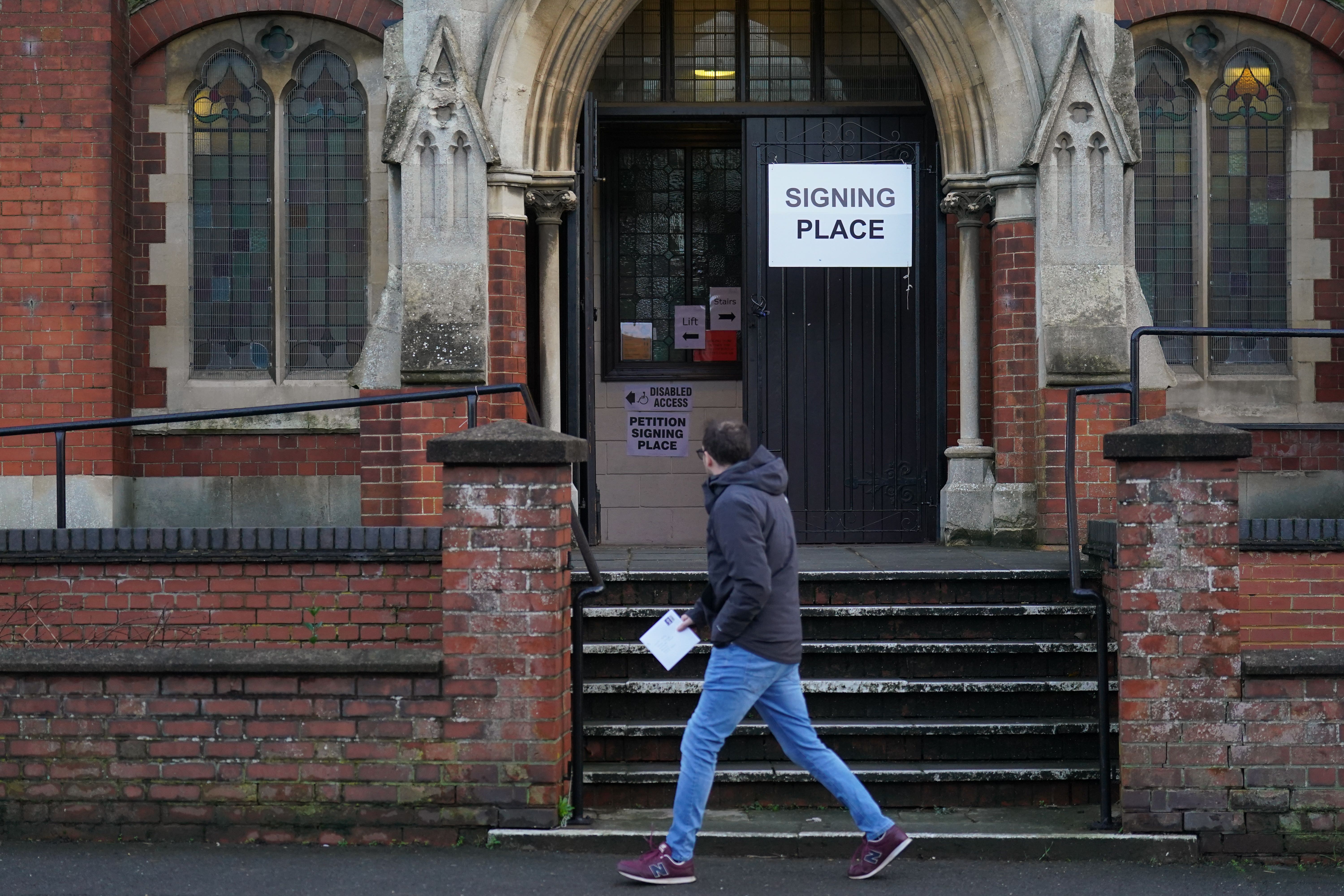MPs complain threshold for recall petition is too low, says Mordaunt
MPs suspended from Parliament for 10 days or more face the possibility of a recall petition and a by-election, but some believe this is too low.

Your support helps us to tell the story
From reproductive rights to climate change to Big Tech, The Independent is on the ground when the story is developing. Whether it's investigating the financials of Elon Musk's pro-Trump PAC or producing our latest documentary, 'The A Word', which shines a light on the American women fighting for reproductive rights, we know how important it is to parse out the facts from the messaging.
At such a critical moment in US history, we need reporters on the ground. Your donation allows us to keep sending journalists to speak to both sides of the story.
The Independent is trusted by Americans across the entire political spectrum. And unlike many other quality news outlets, we choose not to lock Americans out of our reporting and analysis with paywalls. We believe quality journalism should be available to everyone, paid for by those who can afford it.
Your support makes all the difference.MPs have complained that the threshold for triggering a recall petition is too low, Penny Mordaunt has said.
Current legislation means any MP who is suspended from the Commons for 10 days or more can be subject to a recall petition, which triggers a by-election if it is signed by 10% of the MP’s constituents.
Giving evidence to the Commons Standards Committee on Tuesday, Ms Mordaunt, the Leader of the House, said several MPs had complained to her that the 10-day threshold meant there were no “middle options” for sanctioning misbehaving MPs short of seeing them potentially losing their seat.
She said: “I think that the main complaint and concern is the trigger for that process, that by the original legislation having gone from 30 to 10 days it doesn’t give you a lot of options, and I think that’s the chief concern with that.
“It’s been in operation for a while. You are starting to get these cases, you of all people will know, where you have found yourself maybe wishing you had more options for individuals, but that’s the chief complaint that’s made to me from colleagues.”
Introduced in the wake of the expenses scandal, the Recall of MPs Act originally required a suspension of 30 days to trigger a petition but this was amended to 10 days as the legislation made its way through Parliament.
Since then, there have been five recall petitions, three of them triggered by suspensions from the Commons for more than 10 days.
Ian Paisley Jr was suspended for 30 days in 2018 but the recall petition was unsuccessful. More recently, Margaret Ferrier and Peter Bone were both successfully recalled in 2023 following suspensions of 30 days and six weeks respectively.
All three recall petitions would have gone ahead under the original proposals.
Several other MPs have left Parliament after receiving a suspension before a recall petition could be started including Boris Johnson, Owen Paterson and Christian Matheson.
Ms Mordaunt was giving evidence as part of the Standards Committee’s inquiry into the “standards landscape” of the Commons, looking at how the conduct of MPs is regulated.
She raised concerns about whether other sanctions were appropriate for the modern world, including the suspension of MPs without pay.
She said: “We have a sort of legacy, almost, going back to when being a Member of Parliament, the norm was it was part of a range of jobs people did as opposed to being their main job.
“So really questioning whether some of the financial sanctions that are placed on people who cannot attend the Commons due to poor behaviour are helpful, whether they are appropriate in the modern world.
“I think there would be quite a small set of circumstances where someone was suspended from a job without pay, without some recognition of the consequences for the person.”
She also questioned whether the requirement to make a public apology in some cases was appropriate, given the impact on the individual MP making that apology.
She said: “I think it’s very important that if we get things wrong or we do things wrong, we recognise that we are letting the whole of Parliament down, I can see why those kind of apologies might happen.
“There are some members where just because of the social media world we live in now, those kind of hooks may lead to more severe consequences for them than this committee would want.”